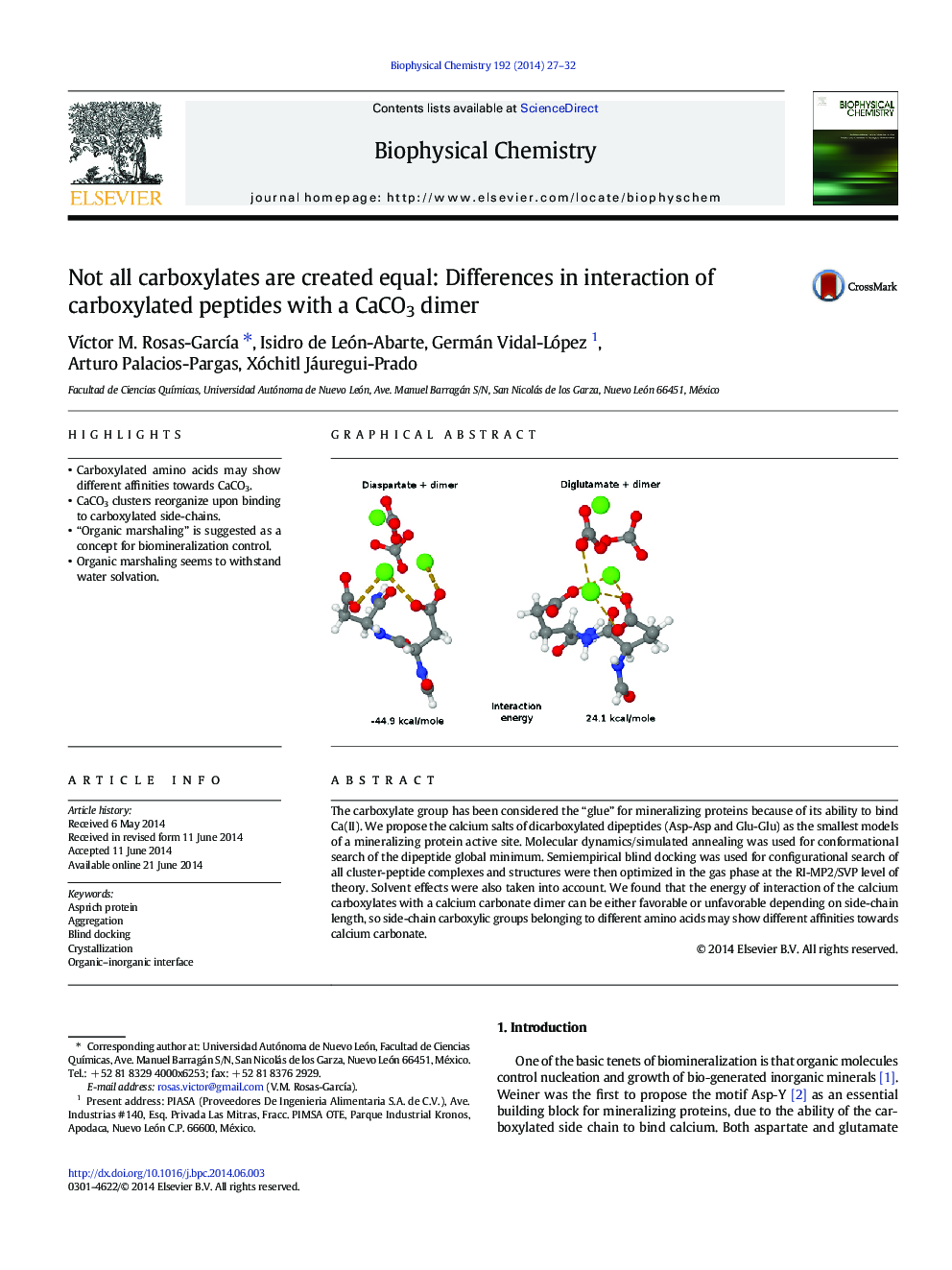| کد مقاله | کد نشریه | سال انتشار | مقاله انگلیسی | نسخه تمام متن |
|---|---|---|---|---|
| 5370975 | 1503924 | 2014 | 6 صفحه PDF | دانلود رایگان |

- Carboxylated amino acids may show different affinities towards CaCO3.
- CaCO3 clusters reorganize upon binding to carboxylated side-chains.
- “Organic marshaling” is suggested as a concept for biomineralization control.
- Organic marshaling seems to withstand water solvation.
The carboxylate group has been considered the “glue” for mineralizing proteins because of its ability to bind Ca(II). We propose the calcium salts of dicarboxylated dipeptides (Asp-Asp and Glu-Glu) as the smallest models of a mineralizing protein active site. Molecular dynamics/simulated annealing was used for conformational search of the dipeptide global minimum. Semiempirical blind docking was used for configurational search of all cluster-peptide complexes and structures were then optimized in the gas phase at the RI-MP2/SVP level of theory. Solvent effects were also taken into account. We found that the energy of interaction of the calcium carboxylates with a calcium carbonate dimer can be either favorable or unfavorable depending on side-chain length, so side-chain carboxylic groups belonging to different amino acids may show different affinities towards calcium carbonate.
Journal: Biophysical Chemistry - Volume 192, August 2014, Pages 27-32